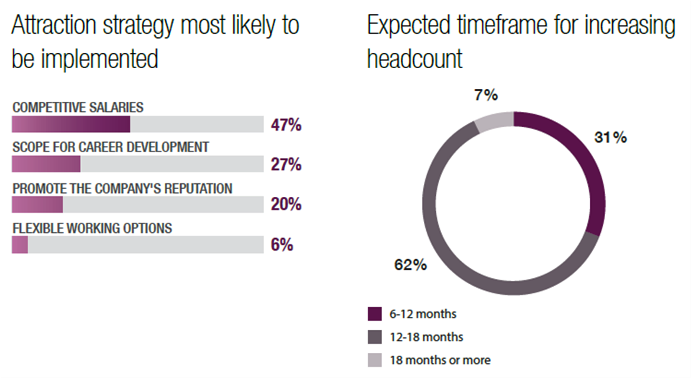According to the latest report on hiring and jobs in Singapore by Michael Page, business conditions in Singapore proved relatively stable over the last 12 months, as companies continued to choose Singapore as a hub for their regional operations. Within this climate, over half of employers surveyed (52%) for the H1 2013 Employment Index Report indicate current business conditions are satisfactory.
This stability of business conditions is likely to create a positive volume of job opportunities in the professional employment market during the first six months of 2013. According to survey findings almost half of the respondents (46%) expect to increase headcount in their company, with 53% indicating they are likely to boost staff numbers by up to 5%. This new headcount is most likely to be attributed to the operational function of the business, according to almost half of surveyed employers (47%).
Alongside a healthy volume of job opportunities expected in the first six months of 2013, the level of employee turnover is also anticipated to be steady. Almost half of surveyed employers (49%) expect the level of staff turnover to be the same as the second half of 2012 and 70% report their focus on staff retention will also remain unchanged. Performance based rewards will be the retention strategy focused on by most employers (46%). For companies with a focus on acquiring staff, competitive salaries will most likely be offered to attract talent according to 47% of employers.

While 31% of survey respondents view business conditions in Singapore over the first six months of 2013 as stable, a further 27% expect business conditions will improve and 24% expect they will decline. Overall, most surveyed employers (40%) report concern for achieving business goals within their allocated budget, as companies continue to drive their business forward in the stable business environment.
The weak European economy is having a moderate impact on current business activity levels in Singapore for most surveyed employers (49%), however overall, 44% of respondents do not plan any specific action in response to this impact.




